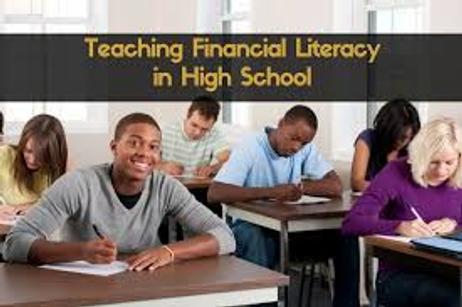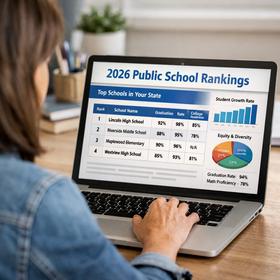We worry that our children cannot keep up globally in important subjects like math and science, but what about money management? While financial training has not traditionally been a part of the "3 R's" of education, in a world of tough economic times, it has become an essential component of a sound education.
Subsequently, some public schools are implementing financial subjects as a part of their core curriculum, while non-profit organizations are working hard to provide resources to schools to help them in their efforts. Financial literacy is slowly but surely becoming an academic catchphrase for the 21st century.
Why is financial literacy important?
Opp Loans answers that question as follows: "Financial literacy is important because it equips us with the knowledge and skills we need to manage money effectively. Without it, our financial decisions and the actions we take—or don’t take—lack a solid foundation for success. And this can have dire consequences:
- Nearly half of Americans don’t expect to have enough money to retire comfortably.
- Credit card debt has reached its highest point ever.
- Forty percent of Americans can’t afford a $400 emergency expense.
- Given the above statistics, it might not be surprising that nearly two-thirds of Americans can’t pass a basic test of financial literacy.
To explore the importance of financial literacy, we turned to personal finance experts working in colleges, high schools, and credit unions. Together, the populations they serve span a broad range of ages, incomes, and backgrounds. These educators witness first-hand the impact that financial literacy—or the lack of financial literacy—can have on a person’s life."
This video explains financial literacy for high school students.
What is Financial Literacy?
Financial literacy encompasses a number of specific topics that work together to instruct students on how to become savvy managers of their personal resources. Some of the topics that might be included in a financial literacy program include:
- Tax preparation
- Opening checking accounts
- Investment strategies
- Debt management
- Budget setting
- The importance of saving
- Financial planning for the future
While not all of these subjects affect high school students directly, many educators have determined that it is never too early to begin teaching the basics of sound financial management. Many high school students have jobs and are looking ahead in financing a college education. Even daily decisions like whether to buy a car or how to save for prom can be addressed in financial literacy courses.
This video explains financial literacy.
Why High School?
While the recent economic meltdown cannot be wholly attributed to a lack of financial understanding among the general population, poor money management skills may well have contributed to the rising debt problems and some of the risky mortgages that were undertaken. Unfortunately, many parents are not equipped to teach their children about good money management techniques because they have never been taught themselves.
Even educators may find themselves on the short end of the financial literacy stick since these specific topics are not necessarily addressed in an education program in college. To ensure students are getting the right information, resources must be available to help teachers impart the facts to their students. Fortunately, two such organizations exist and currently offer a wealth of resources to schools and parents.
JumpStart Coalition
The JumpStart Coalition is a non-profit organization committed to educating pre-kindergarten through college students about the finer points of savvy financial management. The Coalition provides a wealth of resources for educators to promote and support financial education.
The Clearinghouse is "the nation's most comprehensive collection of financial education resources suitable for students in pre-kindergarten through college," according to the organization's website. There is a significant amount of free material educators can draw from to work financial literacy into their lesson plans, as well as material that can be ordered for a charge.
NEFE High School Financial Planning Program
Another resource for educators is the National Endowment for Financial Education or NEFE. While this non-profit organization serves to educate people of all ages, their NEFE High School Financial Planning Program is specifically geared to students. The comprehensive program includes most of the topics listed earlier in this article, and it encourages educators and parents to work together to provide the best financial training for students.
This video offers 4 rules for financial literacy.
Benefits of Financial Literacy
Schools that have incorporated financial literacy into their classrooms have seen many benefits from the curriculum. Twelve public schools in Chicago have launched a test program to teach students about personal financial issues, according to the Chicago Tribune. Teachers and parents have been pleased with the results thus far, and Chicago Public Schools are hoping to expand the program to even more schools next fall.
At Sunset High School in Dallas, an American history and economics teacher has also come on board with the importance of financial education. According to a recent report in the New York Times, Matthew Frost has begun pairing students to be "married" couples with two children to support. They are given jobs and salaries comparable to the average salaries in the area. Much like the game of Life, students then draw cards to signify life circumstances, such as a car needing new breaks or a medical issue. One student told the Times, "I learned that good budgeting has to be maintained throughout a person's life, no matter the income, no matter the living conditions."
While financial teaching is proving to be advantageous to the students who receive it, we are far from achieving a national standard for this type of curriculum. Many educators believe it will take a partnership between parents and teachers to get financial literacy into the classroom on a consistent basis.
Questions?















